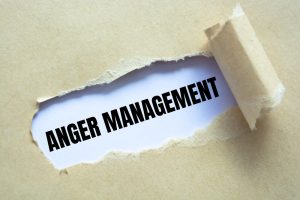I. Introduction
In contemporary workplace settings, managing emotions, particularly anger, has become an essential focus for both organizational productivity and employee well-being. The prevalence of workplace anger can undermine collaborative efforts and hinder overall morale, necessitating effective strategies to mitigate its impact. Establishing healthy relationships among employees can foster an environment that encourages open communication and emotional intelligence, crucial components in reducing instances of workplace anger. An essential strategy involves adopting an empathetic approach, wherein leaders and team members connect on a personal level, thus creating a supportive atmosphere. As highlighted, Beyond rules, procedures, and manuals lie relationships. Jettisoning a formal hierarchical company structure allows all levels of management and employees to positively interact – this is where the key driver of empathy is so critical to continue building these relationships and molding a common organizational purpose (Holt et al., 2017). Furthermore, incorporating techniques that promote positive emotions can enhance emotional coherence, ultimately leading to improved workplace dynamics (Childre D et al., 2002).

A. Definition of workplace anger
Workplace anger can be defined as the emotional response that arises from various stressors and injustices experienced within a professional environment. This form of anger often stems from factors such as perceived inequities, ineffective communication, and cultural profiling that can create a hostile atmosphere, particularly for marginalized groups. As suggested by recent research, discriminatory practices can foster an environment filled with scrutiny, which stifles authenticity and innovation among employees (Roberts et al., 2007). Moreover, the communication practices in a workplace significantly influence how employees express and manage their anger. Effective communication, particularly during changes within an organization, is crucial, as it addresses employees’ needs for timely and relevant information and provides opportunities for meaningful feedback (Brown et al., 2012). Therefore, understanding the roots of workplace anger and its implications is vital for fostering a healthier work environment, ultimately contributing to the overall success and well-being of the organization.
B. Importance of addressing workplace anger
Understanding the significance of addressing workplace anger is vital for fostering a productive environment, as unchecked emotions can lead to detrimental consequences for both individuals and organizations. Anger, when left unaddressed, can escalate conflicts and create a toxic atmosphere, stifling collaboration and innovation. Research has shown that workplaces rife with anger often experience increased stress levels among employees, which can impair decision-making and hamper overall performance. Moreover, marginalized groups may face additional challenges, as unproductive cultural dynamics can lead to scrutiny and identity performance constraints, effectively stifling their contributions and perpetuating inequalities (Roberts et al., 2007). Addressing workplace anger proactively not only promotes emotional well-being but also nurtures a culture of inclusion and engagement. As studies reveal, the effectiveness of programs designed to manage workplace anger hinges on recognizing the complex experiences individuals face (Ahl H et al., 2009). Consequently, implementing strategies to mitigate anger becomes essential for sustaining a healthy organizational culture.
C. Overview of strategies to limit workplace anger
To effectively mitigate workplace anger, organizations must adopt a multifaceted approach that encompasses emotional awareness, coping strategies, and supportive workplace environments. Providing training programs that enhance emotional intelligence can empower employees to recognize their feelings and those of others, fostering a more empathetic workplace culture. Such programs can help individuals develop necessary skills for managing stress, ultimately leading to reduced emotional exhaustion and increased job satisfaction, as highlighted in a qualitative study of child welfare workers that linked emotional skills to positive workplace outcomes (Frensch et al., 2007). Furthermore, integrating methodologies that measure and analyze emotions can significantly inform organizational climate and decision-making. By systematically assessing employees emotional states, companies can tailor interventions to address specific issues and transform organizational practices to nurture a healthier work environment (H PRIESMEYER R et al.). Collectively, these strategies create a proactive framework to limit workplace anger and enhance overall organizational well-being.
II. Understanding the Causes of Workplace Anger
Exploring the causes of workplace anger necessitates an understanding of the multifaceted dynamics within organizational environments. The interplay of occupational stressors, such as unrealistic expectations, insufficient support, and workplace inequality, often exacerbates feelings of frustration and resentment among employees. Particularly within gendered work contexts, women frequently encounter indirect inequalities that can intensify workplace anger, as evidenced by findings indicating that higher educations employability mechanisms may inadvertently perpetuate these disparities (Ahl H et al., 2009). Additionally, conventional management practices often employ fear as a motivational tool, which can lead to an environment rife with anxiety, further fueling anger among employees (Thomas et al., 2014). By critically examining these contributing factors, organizations can better identify the root causes of workplace anger, leading to proactive strategies that foster a more equitable and supportive atmosphere. Ultimately, addressing the sources of anger is essential for cultivating a healthier workplace culture and enhancing overall employee satisfaction.
A. Common triggers of anger in the workplace
Understanding the common triggers of anger in the workplace is essential for fostering a productive environment and mitigating conflict. One significant catalyst is poor communication, which can lead to misunderstandings and exacerbate frustration among team members. Additionally, high-stress workloads often drive employees to feel overwhelmed, resulting in heightened irritability and anger responses. Workplace dynamics, such as favoritism or perceived inequality, can further contribute to feelings of resentment and anger among staff. Inconsistent leadership and lack of support can also trigger negative emotions, particularly if employees feel undervalued or disrespected. Addressing these triggers proactively can aid in creating an atmosphere conducive to collaboration and respect. Employing strategies highlighted in relevant studies, such as those presented in (Childre D et al., 2002), can promote emotional regulation and effective communication, ultimately decreasing instances of workplace anger and fostering a healthier organizational culture. Identifying these common triggers allows for targeted interventions that can significantly improve workplace dynamics.
B. The role of stress and workload in anger
In contemporary work environments, the interplay between stress, workload, and anger is increasingly recognized as a critical area of concern. As employees face escalating demands, the resultant occupational stress can lead to heightened levels of frustration and irritability, which may manifest as anger towards colleagues or work-related situations. Research indicates a significant correlation between stress and turnover intentions, suggesting that individuals burdened by excessive workload may either disengage or react with hostility when their limits are tested (Abdullah et al., 2007). This phenomenon is not solely confined to educational settings but spans across various sectors, including corporate environments where bullying and interpersonal conflicts can exacerbate workplace stress and anger (Kleinheksel et al., 2019). Therefore, addressing workplace stressors and adopting effective stress management strategies are imperative to mitigate anger, foster a healthier work atmosphere, and ultimately enhance employee well-being and productivity.
C. Impact of workplace culture on employee emotions
A robust workplace culture significantly influences employee emotions, directly impacting overall job satisfaction and productivity. When cultural dynamics foster an inclusive environment, employees experience heightened levels of engagement and emotional security, which can effectively mitigate feelings of anger and frustration. Conversely, a workplace that emphasizes identity performance can create pressures that lead to negative emotional outcomes. For instance, when employees perceive that they must conform to certain cultural norms, particularly those from marginalized groups, they may exhibit less authenticity, resulting in decreased innovation and increased emotional strain (Roberts et al., 2007). Furthermore, an organizational culture characterized by open relationships, rather than rigid hierarchies, fosters empathy and collaboration among employees. This relational aspect helps build a shared purpose that can alleviate workplace tensions and anger, promoting a healthier emotional environment overall (Holt et al., 2017). Thus, understanding the intricate interplay between workplace culture and employee emotions is vital for limiting workplace anger.
III. Strategies for Managing Anger
Effective management of anger in the workplace is crucial for fostering a productive and harmonious environment. One of the primary strategies involves promoting open communication, allowing employees to express their concerns before they escalate into anger. Additionally, implementing conflict resolution frameworks tailored to the sources of disputes can significantly mitigate tension. According to organizational scholars, failure to recognize the root causes of conflict undermines the effectiveness of dispute resolution strategies, emphasizing the need for a nuanced understanding of workplace dynamics (Budd et al., 2017). This is particularly important as cultural profiling can lead to a stifling atmosphere where employees feel pressured to conform, thereby stifling authentic expression and innovation (Roberts et al., 2007). By prioritizing diversity and providing tools for both emotional regulation and constructive dialogue, organizations can reduce incidents of anger and create a more inclusive and effective workplace.
A. Techniques for self-regulation and emotional control
In the pursuit of effective emotional control within the workplace, self-regulation techniques emerge as critical tools for managing anger and stress. Central to these methods is the concept of physiological coherence, which captures the beneficial state achieved through sustained positive emotions. The Institute of HeartMath has developed techniques such as Freeze-Frame® and Heart Lock-In®, which engage the hearts connection to emotional experiences and promote a calming effect on the body’s stress response. By fostering emotional regulation, these techniques can significantly improve individual performance and interpersonal relationships in a work environment. Moreover, the integration of online panel data (OPD) research illustrates a growing acknowledgment of the need for structured emotional management strategies in contemporary organizational settings. As workplaces become increasingly complex, applying these self-regulation strategies can mitigate anger occurrences and encourage a more harmonious professional atmosphere (Childre D et al., 2002), (Cho et al., 2018).
B. Importance of communication skills in conflict resolution
To effectively manage workplace anger, strong communication is key for conflict resolution. When disagreements occur, individuals who can clearly express themselves foster greater understanding among their peers. This clear communication reduces confusion and builds a collaborative atmosphere where everyone feels valued. Research indicates that organizations with open communication generally manage conflicts better. However, these systems often fail without a commitment to a communicative culture. Indeed, without this groundwork, even robust conflict resolution methods might not succeed ((Rabinovich-Einy et al., 2011)). Conflict resolution via discussion also promotes lasting solutions that improve teamwork and output, as people are encouraged to collaborate instead of opposing each other ((Ljung et al., 2005)). In most cases, developing communication skills proactively minimizes workplace anger and promotes a positive organizational culture.
C. Role of mindfulness and stress-reduction practices
Generally speaking, mindfulness and stress-reduction techniques are pretty important when it comes to reducing anger in the workplace. They do this by helping people regulate their emotions and feel better overall. When people do things like meditation or focused breathing, they become more aware of how they’re feeling and what sets them off. This awareness can help employees spot frustration before it turns into full-blown anger, leading to better conflict resolution. Studies have shown that resilience training, which often includes mindfulness, can improve mental health and psychosocial well-being (*Abbott et al., 2015). Plus, when employees get good at mindfulness, they not only become more resilient but also help create a more positive work environment, which in most cases leads to improved performance and job satisfaction. It’s essential to include these practices in company cultures to create a healthier workplace and minimize instances of workplace anger (Kheng et al., 2018).
IV. Creating a Supportive Work Environment
Generally speaking, crafting a work environment that is supportive stands as essential in mitigating anger in the workplace, due to the fact that it can help boost collaboration and has been shown to help reduce the number of instances where conflicts occur among staff. Studies have indicated that things like bullying at work and certain types of inappropriate behavior can have remarkably negative effects on both individuals and the culture of the organization as a whole, and that can result in higher levels of stress and decreased productivity (Burford et al., 2013). An important aspect is ensuring that policies are put in place that promote both equality and diversity, ensuring that each employee feels that they are both valued and respected in their work environment (Joy et al., 2015). Organizations can cultivate a culture that not only works to prevent anger, but can also enhance employee satisfaction, by prioritizing open communication, offering resources to resolve conflicts, and further encouraging teamwork. Proactive management centered around inclusivity and support helps create a healthier organizational climate where individuals thrive, which in turn can limit the potential for anger and its detrimental effects.
A. Encouraging open dialogue about emotions
It’s generally understood that cultivating a work environment that allows employees to openly discuss emotions goes a long way toward minimizing anger. Moreover, it helps build trust and understanding among team members. Organizations, when employees feel safe, can move away from historically stiff emotional expectations. These expectations often force individuals to bury anger and frustration. Instead, they can seize opportunities for shared healing and development. Some studies suggest that, while traditional methods often push for emotional suppression to uphold professionalism, a restorative justice approach presents a better option. This is because it recognizes and deals with the complex emotions at the heart of workplace disputes (Gregory D Paul et al., 2015). Also, acknowledging how important emotions are to decision-making highlights that managers need to create a space where emotional expressions–like fear or anxiety–are not just acknowledged, but woven into ethical thinking (Santosuosso et al., 2016). When organizations encourage such dialogue, they improve employee well-being and reduce the chances of anger issues in the workplace.
B. Implementing policies that promote respect and inclusion
Generally speaking, to really build a workplace that values respect and inclusion, organizations have to put strong policies in place. These policies should do more than just deal with misconduct; they also need to encourage a culture where people are held accountable. Evidence indicates that in some industries–think about the study of sexual harassment among factory workers in Thailand–harassers often don’t face consequences, which can create a cycle of anger and fear among employees (Kompipote et al., 2002). To stop these negative effects, companies should actively monitor and standardize how people behave at work. This way, everyone knows what is expected when it comes to respectful interaction. Furthermore, as Adelle Blackett and Colleen Sheppard pointed out in their working paper, collective bargaining can be very important for setting fair standards and supporting workers’ rights to a safe and inclusive environment (Blackett et al., 2002). By making these things a priority, organizations can reduce workplace anger and build a more harmonious culture.
C. Providing resources for mental health support
These days, giving mental health support the attention it deserves at work is a must, especially if we want to reduce anger and help everyone get along. Companies really need to put money and effort into making sure their employees are doing well, since there’s a clear link between how someone feels mentally and how well they perform on the job. Putting resources into things like health and wellness coaching isn’t just about dealing with the stress people are feeling right now; it’s also about helping employees build the ability to bounce back from tough situations. Studies show that when employees get involved in wellness coaching, they start to understand their own health better, which means they can handle stress and take care of themselves more effectively. Actions like these can boost how engaged and productive employees are, and that can lead to the organization doing better overall (Lawson et al., 2019). Moreover, having guidelines for setting up transitional job programs can provide a organized way to encourage work environments that are inclusive and supportive, and that can really help both employees and employers (N/A, 2010).
V. Conclusion
To sum it up, keeping workplace anger in check is super important for a smooth and productive work life. It’s not a one-size-fits-all solution; we need to tackle it from different angles, both as individuals and as a company. Workers should get the tools to understand and deal with their feelings, which helps them get along better and work as a team. At the same time, companies should have rules that encourage people to talk openly and offer ways to solve problems. Doing this stuff isn’t just about reducing anger; it also makes employees happier overall. Studies, like those from the Joseph Rowntree Foundation, show that handling tough topics, including how we manage our emotions at work, can create a more positive vibe (Lloyd et al., 2010). Plus, using tech to make communication easier can build a supportive environment, kind of like what educational research has found with group learning (Linares et al., 2013).
A. Recap of the importance of limiting workplace anger
Dealing with anger at work isn’t just about keeping folks happy; it’s also about building a team-oriented company vibe. Unchecked anger? That can really crank up the tension, making for a pretty unpleasant place to work, which then messes with how much people get done and how they feel about their jobs. Instead of telling people to bottle up their feelings, acknowledging and handling those emotions actually lines up with newer ideas, like restorative justice. Restorative justice promotes talking things out and finding emotional closure (Gregory D Paul et al., 2015). Also, building good relationships between managers and staff is key. And, you know, maybe easing up on super strict hierarchies could boost empathy and respect, which are super important for smoothing out disagreements (Holt et al., 2017). Basically, when companies focus on keeping workplace anger in check, they end up with a much nicer atmosphere. This, in turn, helps everyone get along better, work towards the same goals, and ultimately makes for a more effective and satisfying workplace.
B. Summary of effective strategies discussed
To create a more positive work environment, organizations should consider several key approaches when dealing with anger in the workplace. A core strategy involves improving communication, as studies show a clear link between how well employees are informed and how happy and engaged they feel at work (Brown et al., 2012). This doesn’t just mean pushing out information, though. It also involves creating opportunities for employees to share their thoughts and feedback through different channels. Furthermore, workplaces should focus on building stronger relationships. In most cases, this means shifting away from strict top-down management and fostering a sense of shared purpose. By encouraging interaction between all levels, companies can create a culture of empathy. An empathetic workplace can limit potential conflict and reduce dissatisfaction, as it helps to reduce feelings of anger and frustration among employees (Holt et al., 2017). Implementing these types of initiatives could significantly improve employee emotional well-being, enhancing workplace harmony overall, generaly speaking.
C. Call to action for organizations to prioritize emotional well-being
To effectively lessen workplace anger and build a healthier environment, emotional well-being should be a priority for organizations. Traditional methods that tell employees to suppress how they feel can make tensions worse and affect authentic communication, which further complicates interactions between individuals. Companies can, by implementing restorative justice principles, encourage a culture that recognizes how hurtful situations affect people’s emotions and fosters dialogue between employees, which can help healing and understanding occur (Gregory D Paul et al., 2015). An empathetic approach can improve employee satisfaction, as well as strengthen how teams work together and their productivity. Furthermore, when organizations understand that leadership can be romanticized, they can then re-evaluate and connect with employees in a more meaningful manner; this helps to create belonging and agency among all staff (Collinson et al., 2017). Organizations not only limit workplace anger when doing this, but also nurture an emotionally resilient workforce.
Additional AIHCP Blogs
Psychology Behind Enablers. Click here
Additional Resources
Golden, B. (2025). “Recognizing, Understanding, and Managing Workplace Anger”. Psychology Today. Click here
Castrillon, C. (2024). “5 Healthy Ways To Manage Your Anger At Work”. Forbes. Access here
“How To Manage Anger in the Workplace: Strategies and Tips” (2024). Indeed. Access here
Fossilen, L. & Duffy, M. (2024). ” How to Manage Anger at Work”. Harvard Business Review. Access here



















